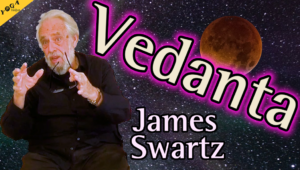Feel more sense more, let your heart function. The intelligence of the heart creates poetry in your life, gives dance to your steps, makes your life a joy… a festivity, a laughter… It makes you capable of love, of sharing. That is true life. – Osho
Tag Archives: Upanishad
839 – Sacred Space
Space verily is greater than radiance.
For in space are the sun and moon,
Lightning, stars and fire.
Through space one calls,
Through space one hears
Through space one replies
In space one delights
Or does not delight…
Meditate on space.That which is Brahman is also the space outside the body.
That which is the space outside the body is also inside the body.
And that which is the space inside the body is also the space within the heart.
That treasure within the heart is full and unchanging.
He who knows this is always full and not subject to change.
720 – Who are we?
702 – Are we all equal?
Women, men and non-binary. I am addressing all of you, dear ones. What images do we have of ourselves? The image of men has not changed at all. They can be dressed in fine clothes with gold fountain pens in their pockets and brief cases made of the finest fabrics. Women and non-binary are the ones, whose image keeps changing. Continue reading
659 – The clever orchid
Belief, faith and hope, which order should we follow?
Before I write about these three words which rule us, I want to share with you a truthful tale about the orchids. My dear ones, you all have observed the beauty of the orchid. It flowers and then gives us so much joy with its beauty. They are mono symmetrical; this means that both halves of the flower mirror each other. The orchid flower is thief, liar and cheat. Continue reading
648 – The light of Brahman
The sun shines not there, nor the moon and the stars, nor these lightnings, not to speak of this fire. When He shines, everything shines after Him; All this is illumined by his radiance. – Mundaka Upanishad. Verse 2.2.10.
639 – Meditations on Earth
May I feel the peace existing in the waters, medicinal herbs and trees of nature.
I meditate on the peace which pervades the Aapah (waters), Oshadh (herbs) and Vanaspati (trees).
Om Dyauha Shanti – Shanti Mantra of the Upanishad. Continue reading
631 – What faith one belongs to
Why does one have to explain?
The Same God
Now there are varieties of gifts, the same Spirit; and there are varieties of service, but the same Lord: and there are varieties of working, but it is the same God who inspires them all in everyone. To each is given the manifestation of the Spirit for the common God.
1 Corinthians 12. 4-7 Continue reading
530 – Self-Liberation
Three extraordinary women and their narratives. Jabala, Maitreyi and Shandili have been written before the Christian Era (BCE). My dear ones when I read these legends, I was so pleased that I felt that I must share these stories. Continue reading
465 – Prana, our subtle breath
Having controlled the Prana and Apana, during Kumbhaka (breath retention), with the gaze fixed steadily at the tip of the nose, performing shanmukh mudra with the fingers of both hands, the mind merge itself in the sound of pranava, Aum. – Upanishads.
Shanmukh mudra is practiced when one closes the ears with the thumbs, the eyes with the index fingers, the nostrils with middle fingers, and place the little finger below the lips. Release the pressure of the middle fingers and open the nostrils. Inhale slowly and deeply using full yogic breathing. At the end of the inhalation, close the nostrils with the middle fingers and practice Kumbhaka (holding breath). Hold breath for as long as possible. Release the pressure of the middle finger and slowly exhale.
What are the Upanishads saying?
Through one’s breath awareness, one is able to control inhalation and exhalation. When this is accomplished, one is able to rid oneself of negativity, doubts and fears. The outcome is one’s thoughts are no longer the rulers of one’s mind.
The mind, when it is free from thoughts, desire and motion, merges in the supreme Brahman. This state is Samadhi. – Upanishads.
The year is ending and what is the resolution one can make? Balance one’s prana and to do that practice Samvrit Pranayama. Inhale to the count of five, hold the breath to the count of five, exhale to the count of five and hold the breath outside to the count of five. Practice 27 times with the mantra So Ham, Aum or your personal mantra. Remain on the spiritual path.
Aim Hrim Klim
464 – The flame of the lamp
Is it steady or is it wavering? When one meditates with a lighted lamp, it plays a lot of games with one. Sometimes the light whooshes and wavers from side to side, or it consumes the wick. Often one keeps lighting it and it does not light. Continue reading
416 – Knowing the Lord
The Chandogya Upanishad says that Bhuma is a celebration of the auspicious qualities of the Supreme One. When Bhuman is seen and heard, nothing else is seen or heard. When Bhuman is known, nothing else is known. Swaroopoham refers to realization of truth. Love and bhakti are within us. Pursuit of Bhakti with sincerity and genuineness is essential. Continue reading
James Swartz – Vedanta, Ishvara and the importance of devotional practices – Talk 14
Vedanta: means of knowledge based on the upanisads or knowledge that ends the quest  for knowledge.
for knowledge.
Modern advaita teachers and qualifications. Arguments from satya viewpoint and from the mithya viewpoint. Example of Ramana Maharshi, his spiritual experience and the knowledge he got from it. Knowledge is the only way to get free because I am already free. But I am ignorant of this fact. You know you exist and that you are conscious. But you don‘t know that you are limitless and free. Vedanta helps you to remove the notion that you are incomplete. The scriptures reveal something to you that you already know. Swami Chinmayananda: gurus are temporary psychological aide.
Verse 36: One achieves devotion by worshiping the Lord ceaselessly. Every action becomes a worship if you offer it to the Lord. Be a caretaker of all the things borrowed by the Lord.
Verse 37: One achieves devotion by hearing and talking about the Supreme Lord’s special qualities, in every relationship. Avoid gossip. The world is a shining reflection of the Lord‘s glory. Go back to the source whenever you see an object. Isvara is both the intelligence and the matter for the creation. Everything is Isvaras body. Two creation teachings: projection teaching and cause and effect teaching. Mandukya Upanishad. Location of objects teaching. You love love. We have to know that objects are love even though they don‘t look like love. You should question what you see and look deeper.
More: Vedanta Seminars.
More on: Vedanta.
Learn more about: Yoga Vidya.
You can sign up for: our online seminars.
You can also support us by: donating.
Podcast: Play in new window | Download
Subscribe: RSS
James Swartz – Nature of non dual love – Talk 8
Beginning of the verses of Narada’s Bhakti Sutras. Traditional 
versus modern style of teaching. Vers 1: Using intellect for
justification is not useful. Devotion is directed to God. Treat
the people around you as if they are God. Devotion is rational.
Vers 2: Focus all of your attention on one topic: who am I?
Samadhana. Love is willing attention. Love of what is right
here and now. You are always present. You love your self.
Selflessness. You are the goodness that makes goodness
good. Hate is a perverted form of bhakti. Duality: Men are
defined by women. You don’t love objects, you love love.
Chasing love in objects is useless. Vers 3+4: You know you
don’t die and get a security benefit. The worry goes away.
Immortal love. Perfection benefit. Gain of knowledge, loss of
ignorance. Enlightenment sickness. Love is your nature. You
are not the body. You were here before your body was born.
Solution is to accept the words of the scripture. Vers 5: Life is
not jiva centered anymore. Free of passion for objects. No
need to feel special. Vers 6: Feel wonderstruck because you
understand and fulfilled the purpose in your life. You know you
are love.
More: Vedanta Seminars.
More on: Vedanta.
Learn more about: Yoga Vidya.
You can sign up for: our online seminars.
You can also support us by: donating.
Podcast: Play in new window | Download
Subscribe: RSS
James Swartz – Karma Yoga and Dharma – Talk 7
Recap of the last session. Freedom as the number one priority 
in life. Nondual bhakti is exclusive love of the self. To progress
spiritually you have to commit yourself to the vedic tradition:
work through all stages. Skipping of the purification by karma
yoga is not useful. Understand the progression. Take care of
all instruments. Dual love is there to qualify for nondual love.
Nondual relationship. Samsara is a zero-sum-reality. You can’t
win and you can’t loose. Karma yoga is suitable to get out of
samsara: prepares you for jnana yoga, jnana yoga gives you
knowledge and knowledge sets you free. You need a noble
idea for your life. All beings are a set of rules by Isvara that
form their nature. Svabhava and svadharma of a human
being. Nature of animals. Karma yoga dharma. Example of
Arjuna. Karma yogis honor samanya dharma or universal
values. Vishesha dharma or situational ethics have no simple
formula. Dharma yoga. React appropriately in relation to
dharma in every situation to avoid bad karma. Krishna: I am
the desire that is not opposed to dharma. Adharma: Going
against your nature or to go against universal values.
Adharmic action creates mental and emotional agitation.
Pollute the environment and living in it is adharmic.
Svadharma of someone commited to Vedanta: be a karma
yogi, develop discipline. Karma yoga is build into the indian
society, that is a dharmic society. Svadharma and profession.
Karma yoga makes less stressful. You start thinking: who is
this Isvara? 4. Upasana. Listening, reasoning (reflecting and
getting rid of opinions that are not in harmony with the
teaching), actualize the knowledge “I am the self”. Getting rid
of obstacles to perfect satisfaction: by continuing the sadhana.
Total sense of confidence.
More: Vedanta Seminars.
More on: Vedanta.
Learn more about: Yoga Vidya.
You can sign up for: our online seminars.
You can also support us by: donating.
Podcast: Play in new window | Download
Subscribe: RSS













